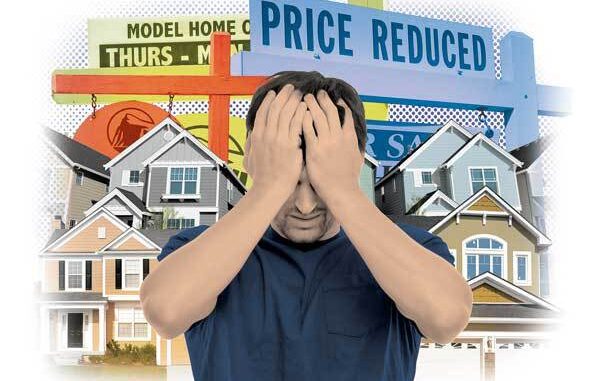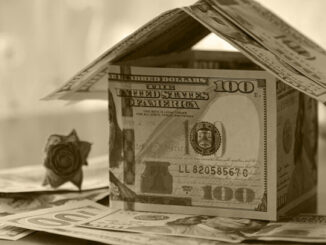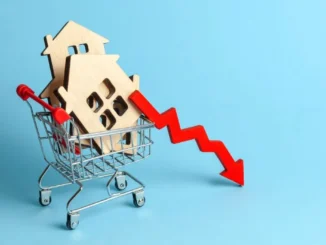
An economic downturn can be a scary time for investors. As consumers spend less, company profits are reduced which can spell trouble for the stock market. If you’re planning to stay invested during uncertain times, should you look away from individual stocks and consider other assets like real estate?
Find: 15 Cities Where Houses Are Best Bargains Right Now
Next: 3 Things You Must Do When Your Savings Reach $50,000
A recent study done by GoBankingRates showed that 90% of Americans don’t invest in real estate during an economic downturn. But is this really a smart move? Keep reading as we dig into whether or not real estate is the best investment during a slowing economic.
Reasons To Invest in Real Estate During an Economic Downturn
There are several reasons why real estate can be a great investment even when the economy is facing uncertainty. Here are a few things to consider.
Real Estate is Always Going to be in Demand
Let’s face it, no matter what shape the economy is in, people are always going to need a place to live. While you might not go out to eat as often or buy as many new clothes, you’re always going to spend money to have a roof over your head.
Now does this mean that real estate is always going to be immune to economic issues? Unfortunately, no. Anyone that lived through the great recession, saw the outcome when the housing bubble popped. However, the housing market tends to fair better overall than many other asset classes.
Favorable Prices Can Lead to Larger Gains
It doesn’t happen all the time, but recessions can lead to lower housing prices. When that happens, opportunities arise. “Economic downturns often lead to a decrease in property prices as demand declines. This can create buying opportunities for investors looking to acquire properties at discounted prices,” says Chase Michels, real estate consultant with The Michels Group. Michels continued to say that it’s important to conduct thorough market research and analysis to understand the potential risks and stability of the local real estate market.
Real Estate Can Provide Cash Flow
During a recession, the stock market almost always goes down. That means you’re losing money. Yes, there are always going to be companies that thrive during uncertain times, but those opportunities are few and far between.
Real estate is different. If you’re invested in residential rental properties, your tenants are paying rent each month. That means your cash flow is alive and well even as the stock market is losing money.
Plus, people are less likely to purchase a home during a recession which means your tenants are likely to stick around longer.
Real Estate is Accessible
One of the best things about investing in real estate is how accessible it is to most people. “You only need basic math to make it work,” says Mark Severino, real estate investor and owner of Best Texas House Buyers. “You don’t need to be stock market savvy to pick a winner. You don’t need to be a crypto hacker to be profitable. Most people know where the good and bad areas of their city/neighborhood are.”
Plus, accessibility goes beyond buying and holding physical property. Instead, you could use a real estate investing platform like Fundrise or Streitwise. While some of these are only available to accredited investors, there are many open to all investors for as little as $100.
Take Our Poll: Are You Planning To Buy or Sell a House This Year?
Disadvantages of Real Estate Investing During a Market Downturn
Even with all the advantages, there are also some disadvantages to consider before investing in real estate during weak economic conditions.
Recessions Lead to Uncertain Returns
Buying real estate in a recession can lead to lower purchase prices and greater returns on your investment. This is a good thing for investors. Unfortunately, no one really knows how long recessions are going to last and if there might be further downside risk.
If prices depreciate further, it would take even longer to see a return on the investment. Plus, cash flow can end up being unstable during an economic downturn. If your tenant loses their job, it will be more likely that they could be late on rent payments.
Tough Lending Requirements
When the economy is in a recession there’s typically higher unemployment overall. This means lenders will be taking on additional risk by offering loans. To protect themselves, they’re going to tighten their lending requirements.
So what does this mean for real estate investors? It might take a larger down payment to get the lowest interest rates or they might not approve someone with a higher debt-to-income ratio even thought they might have been approved during a strong economy.
Increased Competition
When prices are declining fewer people want to buy homes. It’s the exact opposite for investors. During an economic downtrend when prices are lower there is more investor interest. This means you need to be a little bit more aggressive when searching for opportunities.
The bottom line is that even though most people don’t consider real estate as a investment option during weaker economic conditions, there are a lot of benefits. Not only can you score better deals, but real estate can help you achieve consistent cash flow. Just remember to do your due diligence before making any investment decisions.
Source: finance.yahoo.com
ENB
Sandstone Group



